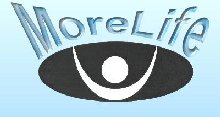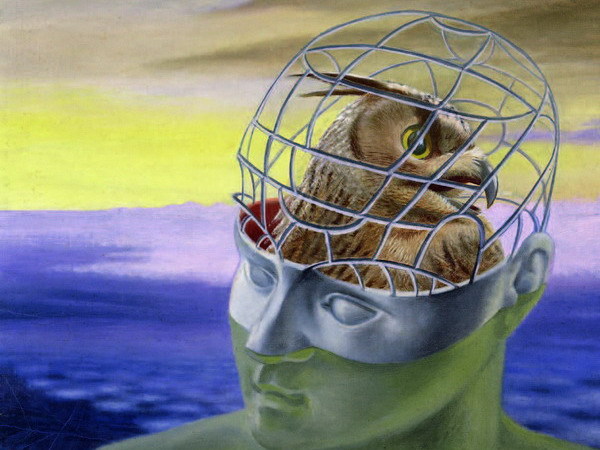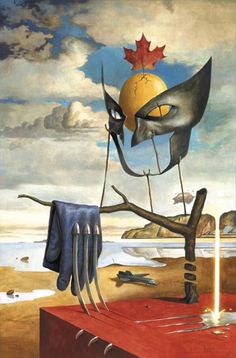
Mole
Member-
Posts
185 -
Joined
-
Days Won
4
Everything posted by Mole
-
Why does whether it hurts someone matter?
-
Is sleeping absolutely right or absolutely wrong?
-
Would you say the same about murder? Like someone says "murder is not wrong" but implicitly saying "I prefer my own life because I wish to say that murder is not wrong". So a person who argues that murder isn't wrong is also using circular logic?
-
Why is that idiocy and retarded?
-
Could you please elaborate on what you mean by conscience? Do you mean the ability to determine right and wrong with logic, or naturally like an instinct, or a desire to do what's right, or some mix of those? When I used conscience I mean the part of the self that will criticise you if you do something wrong. For example, a murderer might know what's right and wrong but we don't say a murderer has a strong conscience.
-
I did not mean they are synonymous. I mean that they both belong to the same category called 'things required for rationality'.
-
Try telling a friend or someone to wake you up one and a half hours earlier than you usually do on a random day like a couple weeks later from when you tell them. This is so you're not expecting to wake up as that might interfere with your REM sleep.
-
One argument is to say that the conscience is much like consciousness, in that it can only be proven with introspection. This is morally appealing because it shifts responsibility to the other person to either accept or reject their own subjective experience since no outsider could ever convince them. This allows for free will. It is also semantically appealing because just as language requires consciousness, it could be said that language requires conscience, so even by using language we have to accept consciousness and conscience. It is not to say that some things can never be proven, but rather that they are proven a priori. Can we put conscience into the same category as consciousness? Can we catagorise conscience as a part of human nature? Is conscience a part of being rational? If so, then no more work needs to be done or can be done to prove the existence of the conscience. We might be able to argue that the conscience is a part of being rational because rationality requires that we don't make arbitrary distinctions. For example, it is irrational to believe in things such as country borders or heaven because those things cannot be objectively measured. Likewise for morality, perhaps we can say for example that everyone has a preference for life. If they didn't, they would be in a vegetative state and wouldn't be really a human at all. So we could say that this preference for life is a part of that human nature I discussed earlier *. If someone prefers their own life, they must also prefer the other peoples' lives because other people are in no way objectively different to them (they share the same human nature). Otherwise, it would be like believing in country borders or in heaven. If someone is immoral, they would have to be irrational because they would have to ignore that fact. Perhaps it's that irrationality that creates psychological distress in the form of cognitive dissonance. This argument sounds very abstract but perhaps it doesn't need to be known consciously to create that psychological distress. The unconscious mind processes things vastly faster than the conscious mind, so I assume that this is where the conscience would exist. More questions could be raised, such as why does the conscience raise so much guilt compared to non-moral mechanisms? One answer might be that moral judgements are existential in nature. For example, believing in country borders has little to do with your wellbeing. But if you are a murderer, the kind of distress you would feel would be epistemologically equivalent to as if you were being murdered yourself because the unconscious mind wouldn't be able to objectively distinguish you from the other person and so would have to sort of assume you are the other person. What do other people think? * Of course, some people kill themselves but even that requires a preference for life because life is required to even decide to kill oneself. Killing oneself is a future preference which does not exist because the future does not exist.
-
The only person who would not accept you is a person that cannot be accepted. So accept them and they will accept you. You don't have an obligation to tell them upfront.
-
Stefan Molyneux Universally Preferable Behaviour.
-
When you have a lower IQ, you are usually not as valuable in the market. In a welfare state, it might be more beneficial for a low IQ person to be on welfare rather than work. Not only does this make them leechers, but they will also vote for a bigger government for the same reason. This is why we often think of lower IQ immigrants as less preferable in our current welfare states.
-
Philosophically speaking, yes. I would say so. I would say that you owe the effects of your actions. Information may be an effect of your actions. Practically, it not matter so much. A free society wouldn't be based on dogmatic principles but rather on cause and effect, and rational self-interest. If intellectual property lines up with those things, then so be it. Whether it lines up with those things I think depends upon the way it is causally linked to individuals, as that knowledge is key to a free market where prediction and objectivity are required.
-
I think it does. I think those organisations violate a criterion of anarchy. For example, we would not have called Somalia anarchic. Now, you may say that total anarchy like total communism is an impossible ideal. However, anarchists still don't claim that the lack of government with less technology is preferable to more government with more technology.
- 35 replies
-
- anarcho-capitalism
- free-market
-
(and 1 more)
Tagged with:
-
Right, but she/he hasn't linked that in with her/his topic. Why is it an argument against anarcho-capitalism?
- 35 replies
-
- anarcho-capitalism
- free-market
-
(and 1 more)
Tagged with:
-
People are not free to decide whether they participate in the government or not, so it has nothing to do with organisations which were free to form. Freedom of speech describes the policies of a government. Therefore, it presupposes the existence of a government. It does not exist in anarcho-capitalism, just as all rights would not exist since there would be no government. It is not a moral principle. When we are talking about freedom of speech, we are talking about public property. In anarcho-capitalism nobody could even try to stop you from speech on your private property. You have no freedom of speech in voluntary exchanges. It’s not true that international markets are free markets. You seem to acknowledge our belief in methodological individualism, so you should know that I won’t accept ‘nations’ as trading entities. It doesn’t matter who releases that bank app you mentioned. That’s not the same as who owns it. I assume the stock holders own the app. Of course single individuals own Apple. Google liquidation. So we’ve had the lack of monopoly on force. So what? Who said it was worse or better? Who’s even used that phrase? I think it’s common-sense to understand that it was capitalism that enabled large governments in the first place. Your post looks incoherent. I think you should try laying out your premises rather than assuming that we know where you’re coming from. For example, why do you bring up freedom of speech? Why bring up “the lack of monopoly on force”? You acknowledge methodological individualism then completely ignore it. You bring up all this empirical evidence against an argument that you seem to have plucked out of thin air and then claim it as empirical evidence against anarcho-capitalism. Look at the comment I made in Part 1. I think you are taking anarcho-capitalist principles as noumenal forms, de-based from reality. I think you should reflect on yourself as an individual and ask yourself what is true and then work from first principles. Your jumping straight into politics and ethics without really acknowledging metaphysics, epistemology.
- 35 replies
-
- anarcho-capitalism
- free-market
-
(and 1 more)
Tagged with:
-
Issues with Anarcho-Capitalism, Part 1: Logic
Mole replied to EGreg's topic in Libertarianism, Anarchism and Economics
You seem to be taking these concepts such as property and force as sort of laws or policies. They are not. In fact, in anarcho-capitalist society, such concepts and their definitions will be rarely sought. It is a grave mistake to believe that there is an individual or a bunch of individuals enforcing such principles. That is a statist or platonic mindset. In an anarcho-capitalist society, individuals adhere to reality, not to some concepts they make up. Whenever some conflict arises, the questions are not who owns what according to what definition. The questions asked are based in reality; who was responsible for what, how can I gain, what are the consequences of this, how are these things causally linked, etc. In the case of Johnny Appleseed, perhaps someone will seize those trees. So what? In a rational society, those trees will be distributed in an efficient and moral manner according to the self-interests of individuals. There is no need to properly define property. All that is asked is for you to be rational. That means accepting that you are responsible for your actions, have the ability to recognise and manipulate your environment, etc. And foremostly to stop believing in the falsehoods that blanket your innate instinct of what it means to be rational. Of course, consequences matter but that doesn’t mean I’m a consequentialist. A consequentialist says that ONLY consequences matter. -
Disclaimer: I'm making this post out of intrigue, I wish no harm to the people mentioned in this post or to anyone affiliated with FDR. I assume that all this is probably a coincidence. I was web surfing and out of complete coincidence (seemingly not connected to FDR) stumbled upon these websites. Archive.org confirms these websites are older than the freedomain radio websites or podcasts or Stefan's personal blog. In fact morelife.org can be tracked as far back as 1998 when they were in early development, and selfsip.org - 2003. This symbol was first used no later than 2001. morelife.org selfsip.org https://twitter.com/paulwakfer https://twitter.com/KittyAntonik The Self-Sovereign Individual Project: A program to achieve freedom from government coercion for those who understand it, want it and are responsible enough to live it On the morelife website: "Cognitive therapy will not be effective for a person who merely reads written material or listens to a speaker describe the model of interaction between the listed five areas of life, because these are too passive. Instead, active participation on the part of the reader of books on the cognitive model or as a client/patient of a cognitive therapist is essential for progress toward increasing happiness." Paul Wakfer ("Kitty" on the left): Born on the 26th of February, 1938. Holds a Master of Arts in Applied Mathematics (MA, U of Toronto, 1960) Is a former computer consultant, teacher and entrepreneur (1973-1990) During Paul's post-graduate studies at the Courant Institute of Mathematical Sciences, at New York University (Washington Square) in 1961, he enrolled in an extra curricular course from The American School of Economics. It was while attending these lectures on freedom oriented economics (by such notables as Ludwig von Mises and Henry Hazlitt), that he overheard a conversation about The Fountainhead by Ayn Rand, then read it and eventually everything associated with her. Since 1972 Paul has been an independent scholar in the philosophy of freedom reading widely and deeply from the works of the classical liberal thinkers and more contemporary libertarians writers. This has enabled Paul to progress from his original views of childhood that an oligarchy of the wisest should govern, to a full recognition that only the individual can judge what is in her/his own best interest and that an individual's goal of seeking to maximize his lifetime happiness will produce a complete and consistent set of rules of social order which will promote and allow this goal to be sought in a conflict-free manner by all rational individuals. Social Meta-Needs (SMN), published in 2004: Social Meta-Needs are those Environmental Attributes of and within Society, common to all individuals, which facilitate the highest possible attainment of Lifetime Happiness by each. The basis of Social Meta-Needs is to be found in the ethical egoism of the individual human, which implies that seeking to optimally increase his Lifetime Happiness by means of optimizing his Benefit/Harm Estimations and consequent Chosen Actions, must be his ultimate purpose. Social Meta-Needs are not ends in themselves, but rather the conditions and tools of Social InterRelationships - the Social means needed to be common to all individuals so that each individual can best attain his ends. A bit about Kitty: Kitty Antonik Wakfer (born April 6, 1945 and also known as Kitty and Katherine Antonik; formerly with last name Raastad and Antonik-Raastad; with other Internet Forum Usernames "Kitty" and "KittyA" and "KittyAW") formerly practiced as a registered nurse and later as a mechanical engineer; she has been an avid reader of science fact and fiction since her youth. As a nurse for 13 years, Kitty worked in the areas of emergency care, obstetrical, pre- and post-surgical, geriatric, psychiatric, and home-health finding the most satisfaction in the latter which allowed her to utilize her strong patient advocate skills. She returned to university level studies (moving to engineering from nursing) and after graduation from the University of Arizona (BSME 1983) she was employed at the then Motorola Government Electronics Group (sold to General Dynamics after her departure). Kitty spent more than 16 years in the mechanical design of space-borne electronic hardware, most notably the GPS Block IIR and Block IIF Crosslink Data Transponders. In this role she was responsible for the mechanical integrity of the units, specifically their performance after launch and deployment. In conjunction with the various electronic engineers and designers, Kitty's responsibilities included the design of the numerous printed circuit boards, their manufacture by outside vendors, and interfacing with in-house assembly services. In addition she was responsible for various analyses, customer presentations, vendor reviews, mechanical testing, and overseeing a team of project mechanical designers. Kitty's pro-freedom philosophy had its earliest formal introduction with the reading of Ayn Rand's Anthem at age 16, the same year that Paul was reading The Fountainhead for the first time. Over the years she read all the works of Rand and many of those of Ludwig von Mises, Henry Hazlitt, Milton Friedman, Paul Johnson, Thomas Sowell and other 20th century writers on economic and personal actions. She has more recently enlarged her knowledge of the moral basis of human interactions by reading many of the writings of earlier writers such as Henry David Thoreau, Lysander Spooner, Jeremy Bentham, Herbert Spencer, and others whose writings either served as philosophical foundations for the US founding fathers or who wrote critiques in the years following the federalization of the US government.
-
- time travel
- paul wakfer
- (and 9 more)
-
Virtue is truth seeking. From this simple axiom comes a number of wonderful conclusions. 1. Abstain from drugs or other fantasies as they weaken your ability to recognise reality. 2. Make choices that will give you even greater choices in the future, so that you can seek more truth. 3. Survive to preserve your truth-seeking ability within yourself. You must hold this as universal and not say that survival is only for myself since a part of truth-seeking is recognising that others are not objectively different, hence any rule saying only I deserve life must be a delusion since it is an arbitrary distinction, which is the opposite of truth-seeking. 4. Be productive so that you may enhance the survival of yourself and others. It is also an application of your rationality. 5. Be creative for inherent in art is some truth about reality. 6. Admire others who also seek truth, and support them so they make seek truth even more. 7. Apply yourself according to your abilities since that is where you will have the greatest knowledge of truth. For example, a brick layer is using his potential and nobody understands the metaphysics of bricks quite like he does. 8. Be moral for if you value truth-seeking, you must value it in others as they are not objectively different. 9. Raise children for they will learn the truth from you and build upon it to even greater truths. 10. Seek leisure as long as leisure is a celebration and reflection of all you have achieved. 11. Socialise so that others may teach you, and you shall teach them. 12. Be compassionate as compassion is the recognition of the reality of the internal world within ourselves and others that we often ignore. 13. Play games, for games are a set of rules that are derived from reality, hence games simulate reality and so are a form of truth-seeking. 14. Have courage as courage is simply expressing one's beliefs about reality regardless of what others wish you would express. We can prove this axiom from first principles. Every decision we make requires that we recognise reality to some degree. Even a drug addict recognises the reality of where he gets his drugs. Therefore no decisions should be made that weakens this capability. In other words, free will should not commit suicide. As soon as you start taking drugs or murdering people or believing lies, your capability to DECIDE to do those things weakens. Without free will we don't exist, for free will is what distinguishes us from our environment. Everything must value itself. An apple ought to be an apple, however, unlike us, it does not have a choice. We are moral agents, so we ought to be moral agents. We ought to not sabotage ourselves. If we did not have the ability to recognise truth, we would literally be unconscious since there would be no concept formation. Truth is the highest value. Universally Preferable Behaviour is essentially a synonym of truth-seeking. All mankind (universally) necessarily prefers (preferable) truth from falsehood (truth-seeking behaviour) at a given moment. UPB is objectively required at any given moment. That does not mean we always prefer it in the future. For example, someone prefers the reality of their beer sip when that occurs but is sabotaging themselves to be able to recognise the reality of the future. Perhaps they get knocked out or become delusional. In fact, all vices are not people deciding to do harm to themselves at any moment, but harm to themselves in the future. The action always comes after the decision. Suicide is generally not virtuous, but even the decision to kill oneself requires a preference for life over death even if that life is being sabotaged because all decisions require life. Ethics is derived from epistemology is derived from metaphysics. Truth-seeking is derived from truth is derived from reality. That's the simplest philosophical system that could exist.
- 13 replies
-
- virtue
- self-knowledge
-
(and 2 more)
Tagged with:
-
I think Boss is right. However I would add that the specific set of atoms must form some greater function and can't just be arbitrary. Otherwise could say that an eraser in Chile, Kim Jong Un's nail clipper and a corkscrew in Italy are all a specific set of atoms that form something I call "International Eraser-nailclipper-corkscrew" (IENC). We could also say government is literally Trump and Pence combined. Even though these set of atoms can be defined and exist, it's absurd to say that IENC exists. The reason being is because IENC does not have any function. Some examples of things that do have a function: A tree serves a function of growing which bark or carbon molecules alone cannot do. A car serves a function of transportation which an engine cannot do alone. We can see that for something to have a function it must be connected by cause and effect which IENC is not, (maybe this proves that everything that exists is temporal?) and form a pattern, like the line that forms between the sea and a beach. All these functions are objectively distinguishable. A government however does not serve a function greater than its parts. Its still a bunch of individuals pointing guns at people. A bunch of bananas does not serve some greater function either so a collection of bananas does not exist. Just my idea, not any sort of expert.
-
I think it's a bad idea to jump out of a moving car. If you feel something then you still have a great opportunity for growth because if you didn't then you wouldn't be able to admire the person since they would be a burden. That's all calculated unconsciously.
-
Does it have to be win lose lose win? Why can't it be a trade. And by trade I don't mean gifting each other. I mean a metaphysical trade just like you trade an axe for a coconut. Cause and effect. Win win. Selfishness. I would argue anything other than a trade is a form of subjectivism because the person who does not make decisions upon cause and effect believes they don't have to listen to reality and can create their own reality in their little head.
-
I think I answered my own question in the bold, my analogy of finding a free source of energy is actually really silly since it only takes a few people and not a whole society to work on it, however, whole society reaps the benefits if they are open to it. This post shows nothing but my own incompetence in having an integrated set of moral values which I can express in the world through my work and life. While others are decisive here I am all confused about which direction I must go to uphold the moral values I claim to have. Just because others don't teach their values to the masses does not mean they don't possess them and it doesn't mean that they aren't doing the best they can with the abilities they have to spread them.
-
Imagine you discovered a source of free energy. You had the designs all laid out. You even had some working prototypes. This would revolutionise the world. But imagine you throw the blueprints and prototype in the bin and decide to become an accountant instead because your parents and teachers say you need a stable job and provide for your family. Isn't this free source of energy no different to philosophy? Isn't it true that philosophy can and has to some degree revolutionalise the world? So what possible value can you find in becoming an accountant, a surgeon, a lawyer, a technician, a teacher, an academic, etc? There isn't much of a societal value incentive. 70% of those dollars will be wasted. Maybe you'll say the value is in the act of the job itself. A source of pride and esteem. How could you possibly find value in anything else if you discovered a source of free energy? It's true that some people must find a career or a specialty to lift themselves out of poverty, but I don't see that applying to first world nations. If you get the career you wanted, how does it feel like working for most of your life knowing that the 20% at the top at your business are creating 80% of the wealth? Unless you are in that top 20%, what is the purpose in sacrificing your life for a couple extra dozen K a year? Why not work 2 hours a day MAX instead and spend the rest of your life in leisure and devoting the rest to teaching philosophy, raising your children, making relationships, learning philosophy, appreciating art, doing self-help? It is true that happiness is derived from value creation; the application of mans' mind, but how can value be appreciated without time devoted to consuming it? After learning about how inefficient the average life is: watching 7 hours of TV a day, or wasting your intellectual prowess in academia or chess, or raising children and having little clue in what you are really doing. It's really made my cynical about society. There are so many options and things to learn for young people like myself but there's no guidance. After learning about philosophy I see a path emerging from the darkness. Albeit, the other paths remain dark. And from my subjective perception, it makes no sense to me why anyone would go another path unless they are some kind of robot monkey who is acting out something wired into him with no free will. Other paths may be lightened for them, but I cannot sympathise with it one bit. Actually, it is worse than not sympathising, it's demoralising. I feel like I have to reinvent the wheel at this point since almost everything people have told me has no real world use. "Follow your passion", "Do what you're good at", "Get a stable job", "You'll figure it out later", "Take a gap year". These are all bromides given to us from dead intellectuals and artists. There is nothing original and real about them. Every man has his own bromide. How can I possibly believe society is well meaning if it does not even have integrity? People talk about finishing their degree in electrophysiology with such passion. But ever since I was a kid no technical passion has existed for me. Ever since I was a young kid I only thought about philosophy. At first, I thought I wanted to be a physicist until I learned that I really wanted to be a metaphysician. Then I thought I wanted to be a Christian apologist but then I realised I wanted to be a moralist. Now I am considering psychology, but perhaps what I really want to be is an epistemologist. Perhaps I should learn to appreciate the innate philosophical aspects to all professions? After all, once anarchism has been realised the same structures will have to be maintained and some industries will have to be transferred into the private domain. Someone has to be good at those things. Perhaps others are incapable of drawing out the blueprints of anarchism. Perhaps that's something my unconscious demands I do. It is good enough if others are at least aware of the transition taking place. Appreciation can be discovered in the work itself. Hmm, and I guess it's sufficient to spread wisdom through personal relationships since one to many relationships (publicity) is for leaders. It is true that if everyone was a philosopher nobody would bake the bread, however, if everyone was a philosopher we wouldn't be in this mess to begin with. Am I being overly cynical? Should I have more appreciation for professional work? If it is true that I should, I better find it otherwise I will be the real robot monkey not being able to find my own passion. The last thing I want to do is project.








